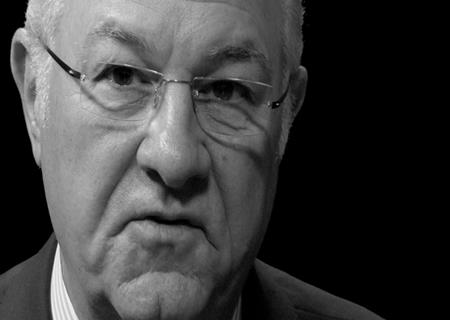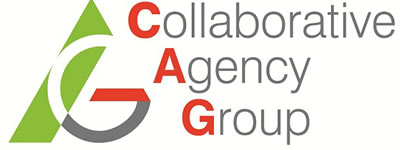
19 Jun Jim Kouzes

Speaker: Jim Kouzes
The coauthor of the award-winning and best-selling book, “The Leadership Challenge”
Topics:
- Innovation
- Leadership
With over one million copies sold. He is also an executive fellow in the Center for Innovation and Entrepreneurship, Leavey School of Business, Santa Clara University, as well as the chairman emeritus of the Tom Peters Company, a professional services firm that specializes in leadership development.
The third edition of The Leadership Challenge, released in the fall of 2002, debuted as number 4 on the BusinessWeek best-seller list, the only 3rd edition of any book ever to make that list. The Leadership Challenge, available in eleven languages, has been a selection of the Macmillan Executive Book Club and the Fortune Book Club. It’s the winner of the 1989 James A. Hamilton Hospital Administrators’ Book, the 1995-96 Critics’ Choice Award, and was a BusinessWeek bestseller in 2001 and 2002. Jim Kouzes and Barry have also coauthored Credibility: How Leaders Gain and Lose It, Why People Demand It, which was chosen by Industry Week as one of the ten best management books of 1993. Their other books include, Encouraging the Heart (1999, 2003) and The Leadership Challenge Workbook (1999, 2003), and The Leadership Challenge Journal (2003). Based on solid research involving over 70,000 surveys, 1,000 written case studies, and 100 in-depth interviews, these books describe the leadership principles and practices that generate high performance in individuals and organizations.
Jim Kouzes and Barry developed the widely used and highly acclaimed Leadership Practices Inventory (LPI), a 360˚ questionnaire assessing leadership behavior (Jossey-Bass/Pfeiffer, 1988, 1997, 2003). The LPI has been administered to over 250,000 individuals, and over one million observers have provided feedback using the LPI. Over 175 doctoral dissertations and academic research projects have been based on their work.
The International Management Council (IMC) honored Jim and Barry as the 2001 recipients of the prestigious Wilbur M. McFeely Award. Past McFeely Award recipients include: Peter Drucker, Lee Iacocca, Tom Peters, Ken Blanchard, Norman Vincent Peale, Francis Hesselbein, Stephen Covey, and Rosabeth Moss Kanter. Jim Kouzes is featured as one of workplace experts in What Works at Work: Lessons from the Masters by George Dixon (1988) and in Learning Journeys: Top Management Experts Share Hard-Earned Lessons on Becoming Great Mentors and Leaders edited by Marshall Goldsmith, Beverly Kaye and Ken Shelton (2000).
Not only is Jim a highly regarded leadership scholar and experienced executive, The Wall Street Journal has cited Jim as one of the twelve best executive educators in the U.S. A popular speaker, Jim Kouzes shares lessons learned about leadership from over 20 years of original research. He leaves his audiences inspired with practical leadership tools and tips to apply at work, at home, and in their communities. His clients have included: Accenture, Applied Materials, AT&T, Bank of America, Boeing, Charles Schwab, Cisco Systems, Consumers Energy, Dell Computer, Deloitte Touche, Egon Zehnder International, Federal Express, Honeywell, Johnson & Johnson, Lawrence Livermore National Labs, Levi Strauss & Co., 3M, Motorola, Roche Bioscience, Siemens, State of New York, Sun Microsystems, Thomson Corporation, and Toyota. “Leadership development is self-development” is the first of several principles that shape the design and delivery of The Leadership Challenge® Workshop. In the design of leadership development programs, we believe that principles come before prescriptions. So before we talk about some of the practical details of the workshop, let’s take a look at a few other basic concepts that inform the architecture of the program. Regardless of content, learning activity, or setting, here are a few important principles that help to shape all our designs:
Leadership is Everyone’s Business
Throughout our book, The Leadership Challenge (3rd ed.), we tell stories of ordinary people who’ve gotten extraordinary things done. We talk about men and women, young and old, from a variety of organizations, public and private, government and third sector, high-tech and low-tech, small and large, schools and professional services. Chances are you haven’t heard of most of them. They’re not famous people or mega-stars. They’re people who might live next door or work in the next cubicle. They’re people just like you. We focus on leaders like this because we firmly believe that leadership is about relationships, credibility, and what people do.
Leadership is a Relationship
Leadership is a relationship between those who aspire to lead and those who chose to follow. Sometimes the relationship is one-to-many. Sometimes it’s one-to-one. But regardless of whether the number is one or one thousand, leadership is a relationship.
Leadership is Learned
It’s nonsense to assume that leadership is genetic. There’s no hard evidence to support that assumption, and worse, it dooms every one of us to accept our limitations as our destiny.
The truth is that leadership is an observable set of skills and abilities that is useful whether one is in the executive suite or on the front line, on Wall Street or Main Street. And any skill can be strengthened, honed, and enhanced if we have the motivation and desire, the practice and feedback, the role models and coaching, and the support and recognition.
Leaders Make a Difference
In our classes and workshops we ask people to share a story about a Personal-Best Leadership Experience—a time when they set their own individual standard of excellence. From this exercise we hope they’ll discover for themselves the practices of exemplary leadership. We have another objective as well—we want them to discover the power that lies within each one of us to make a difference.
Innovation
Leadership



